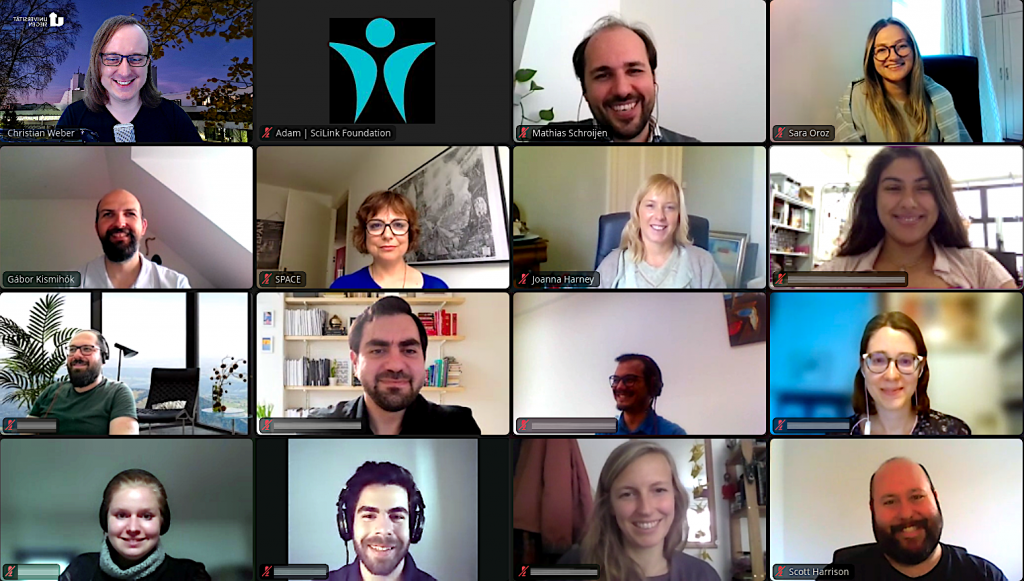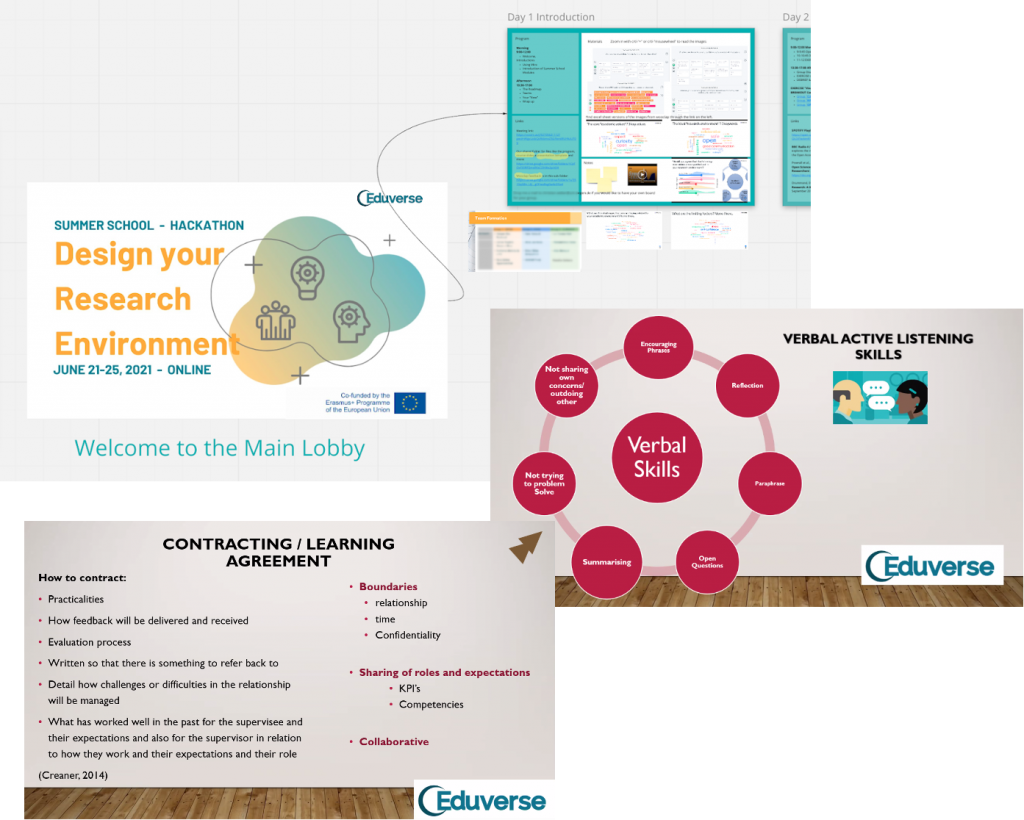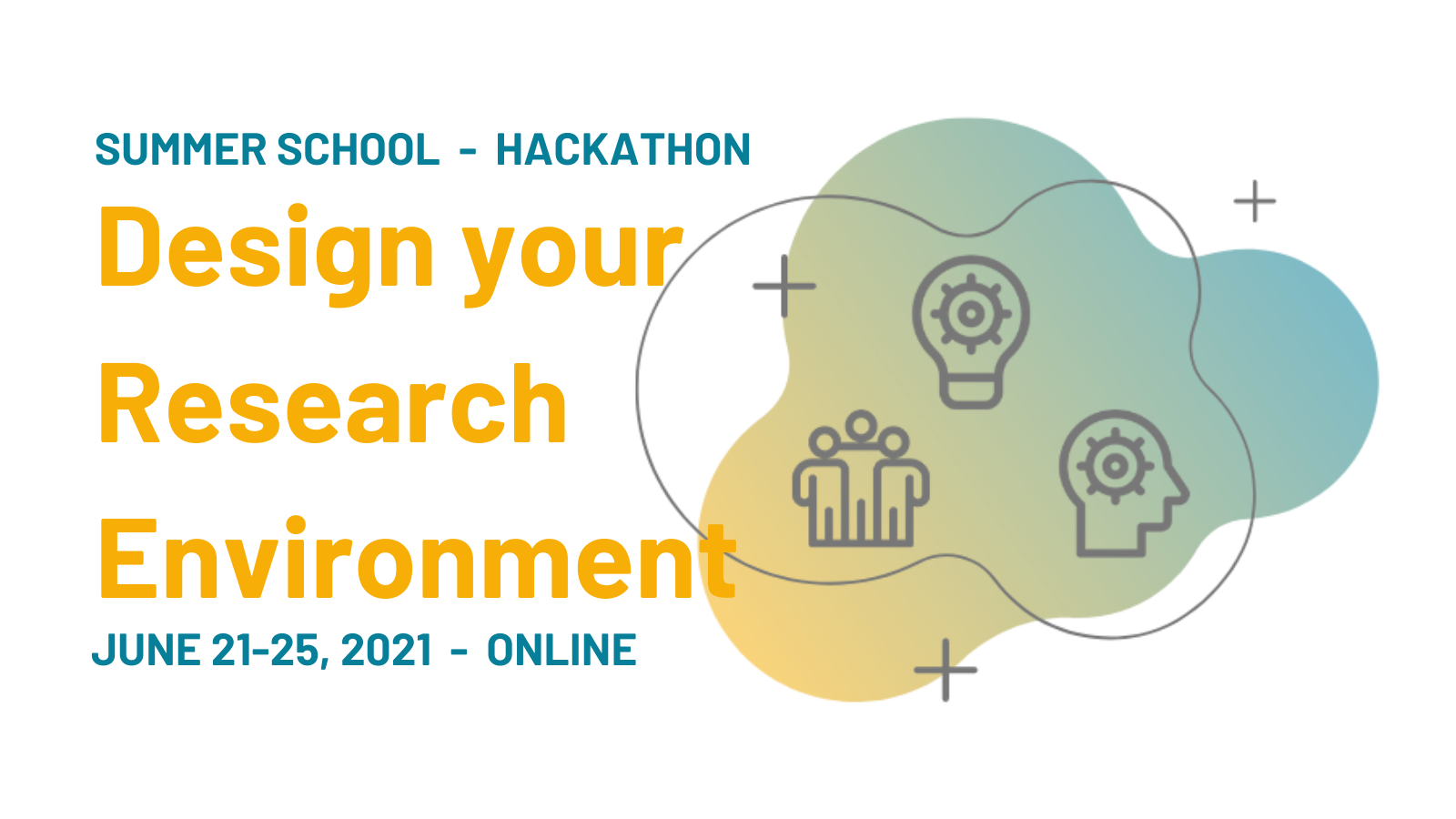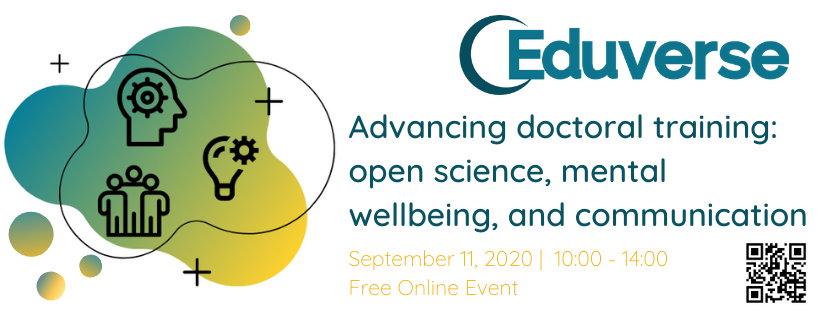During the week of June 21-25, the first OEduverse Summer School was held online. PhD candidates from universities all over Europe, experts, and trainers came together to co-create the ideal research environment. The week-long event focused on developing a roadmap built around the OEduverse Modules: Open Science, Mental Wellbeing, and Science Communication. Read further to learn more.

Open science
On the Open Science (OS) day, participants had discussions on OS tools and strategies for an open and personal research environment. The day had two important goals: 1) Putting OS into a personal perspective, by planning and evaluating one’s own research, and 2) developing strategies to maximize the impact of research output by means of OS.
During the day we covered the following topics:
- Is there a reproducibility crisis? Is science broken? And why waste time on it, if it means we would spend less time on publishing? Participants engaged in a team debate to consider both sides of the issue, and make their own informed mind on the right level of effort they need to invest in their own research.
- How do you turn a bureaucratic demand by funders into a sharp tool for reproducibility AND winning research grants? One way is to upgrade your data management from a focus on “data” to a focus on “outputs”, and embed it into your research method. Participants were exposed to real project examples, from proposal formulation to proposal evaluation impact.
- The research publication: is it the ultimate output, or just the tip of the iceberg? The exercise demonstrated the full range of outputs that come out of research and showed how to capture them systematically, by applying FAIR Principles and OS practices.
Based on the entire day’s lessons learned, participants constructed their own visual Digital Outputs Management Plan, deploying FAIR & OS practices, and e-infrastructure that suit their personal workflow and disciplinary specificities.

Mental Wellbeing
On Day 3, the focus turned towards mental wellbeing in the context of the research environment. Throughout this highly interactive and engaging day, participants looked inward and outward to develop strategies that would improve their mental wellbeing; here is what it looked like:
- We kicked off the day by providing opportunities for participants to review the positives and challenges to existing environments. The focus of the first section was to reflect on how we currently manage and engage with our self-care. A self-care inventory provided us with information about areas we may need to focus on to enhance and empower participants to manage their self-care for more positive results.
- In the second session, we focused on communication and relationships which highly influence the potential for mental wellbeing and health in research environments. Particular attention was paid to highlighting verbal and non-verbal listening skills and how to transfer and use these as favorably as possible with different kinds of relationships which exist in the research environment to enhance clear, transparent communication.
- Finally, the last session was focused on reviewing the systemic issues which may influence our mental wellbeing. This encompassed a review of many different types of systems personal and professional and how they all influence and connect to the status of a person’s mental health and wellbeing.
We ended the day by providing opportunities for more discussion and suggestions around how to implement the skills and strategies outlined into our own research environments.
Science Communication
During the Science Communication (SC) module, we felt the importance of training transversal skills to empower researchers in formulating, communicating, and organizing their ideal research environment. Using an unconventional method in the realm of research, Storytelling, participants were able to have a liberating experience and open the frame of academia without losing context. During this day, participants:
- Re-captivated their initial enthusiasm and motivation towards their research by ‘Owning their Story’. The early-career researchers received training to make room for their plans, for their ‘story’.
- Next, by sharing their experiences, participants became empowered. Through this peer-sharing session, they broke their isolation and recognized each other’s stories even if they worked in very different fields of science.
- Finally, the last session of the day mapped problems, obstacles, and challenges in a safe environment with peers. Together, they created a common ground for the roadmaps of resilience. These roadmaps became powerful and practical action plans with clear targets.
“I was personally amazed how flexible and open the participants were for unusual playful approaches, and how quickly they could make the connection between ideating and practice.” – Petra Ardai, Founder, SPACE
Interested in participating in the next OEduverse event? Save the date for the OEduverse Summer School – June 13-17, 2022!








